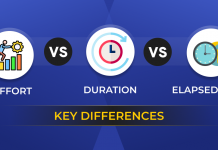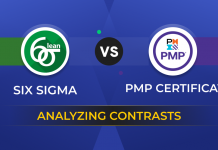
Excellent communication is an integral part of project management. You have to be a good speaker if you want to be a good project manager. Not only that, as a project manager what you say shows your leadership skills, and using right words at the right time will increase the chances of success both for you and the organization.
Powerful Phrases that Project Managers use at a Workplace
-
Let me be Completely Transparent with you:
Many project managers instead of saying ‘Let me be completely transparent with you’ will say ‘let me be honest with you’. It gives the other person a feeling that you are being only honest at this point. Why do you want to assert your honesty only during an important conversation? Instead make a strong point by making a transparent conversation. It helps in many ways such as it draws your listeners close to your conversation and shows them that what you are saying is really important.
When to use it: When you are making a significant point or involved during problem solving session with your team / colleagues. -
Let me share a personal example with you:
As a project manager when you say this phrase, it shows that you are opening up with the other person and you are sharing information which is personal to you. Before you do that you are in fact asking their permission and their time to listen to you. When you share personal information, people are drawn into the conversation. People are usually moved when such conversations happen. These conversation phrases help project managers to get the best out of a team or an individual when things are not going according to the plan in a project.
When to use it: When you are endorsing an argument, illustrating a point and teaching a life lesson where others can learn from it.
-
Can we try it your way:
This powerful phrase says that you acknowledge their idea and you are willing to implement it in the project. As a project manager you might want to even add, this was your idea and we will see how it works. The phrase puts trust in others contribution and you are ensuring the person has some degree of say in key decisions during a project lifecycle.
When to use it: When team members come up with ideas, where you feel it should be implemented for the betterment of the project.
-
What do you think?:
When a project manager comes up and asks ‘What do you think?’ it not only implies that he or she is interested in what is going on with the project, but also to check what you think about it or how do you feel about it. This phrase clearly indicates that your opinion matters and giving you a hint that constructive criticism is welcome. Though businesses today run on data and numbers, but decisions are taken on how one feels about a particular thing. In fact people are more engaging when those feelings are addressed. An intuitive leader understands those feelings and responds accordingly.
Even during a personal conversation, the entire purport and attitude will change with the question ‘What do you think?’
When to use it: When you feel the other person has a say in it, during a meeting where there is a conflict of interest between two or more people.
-
I don’t have an answer right now:
Project managers do not know everything. As a project manager when you say ‘I don’t have an answer right now’ you are saying that you are not omniscient and you will be able to come up with something later. The leadership skills displayed by a project manager consist of far more than these simple phrases, you have to walk the talk and have conversational effectiveness to thrive in the role. In fact “right now” in the phrase acts as a door which will be open for you to come back and provide an answer.
When to use it: When in dilemma on a key decision, you can buy some time to take that all important decision. At the same time it shows that you are humble enough to not to jump into conclusions right away.
-
Would you be open to the prospect of :
It is said that 90% of project manager’s job role is involved in communication and this plays a very important role while communicating with the stakeholders, customers and the team members. For example, you randomly ask your project sponsor to send five of your team members to the latest PMI conference in your city. You as well know the project is already lagging behind schedule and on top of it you are asking for your team members to attend the PMI conference. The project sponsor will be disappointed with your request and he or she might not even entertain it. Instead you can start your conversation with the phrase, ‘would you be open to the prospect of sending our team members to the latest PMI conference which addresses Project Management best practices followed across the globe’.
This is a powerful phrase as the request sounds as a request and not a demand and this allows the listener to take the next step to understand your request and the possibility of getting ‘yes’ as an answer will be on a higher side.
When to use it: When you are making an important pitch or asking for additional resources for the project etc.
-
I would like to show you some research:
Project managers at times use strong-arm techniques and power moves to get what they want. Using such techniques will leave a bad impression. Instead convince them with real data, numbers and legitimate information, show them the research and then persuade them to make the decision. When you ask for time with your research you are getting two things done at a time, one you know that the other person believes in your research and two you are able to prove your point.
When to use it: When you are trying to prove your point.
When project managers use these phrases with the right intention, it will help you to communicate better and showcase your leadership attributes in the right way. Take one conversation at a time and ensure you have answered them correctly to the best of your abilities. Project manager is a leader when he or she actively listens and responds to people in an effective manner.














